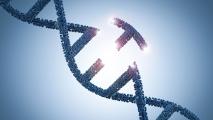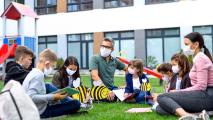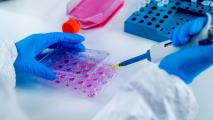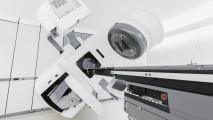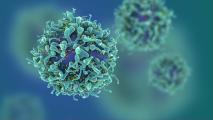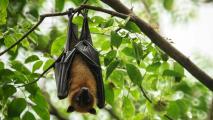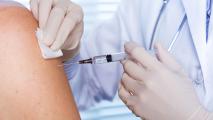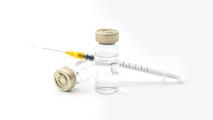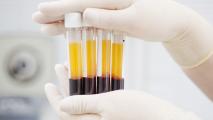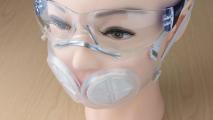
Biotech
Human history has been all but defined by death and disease, plague and pandemic. Advancements in 20th century medicine changed all of that. Now advancements in 21st century medicine promise to go even further. Could we bring about an end to disease? Reverse aging? Give hearing to the deaf and sight to the blind? The answer may be yes. And soon.
More
Small protein, big breakthrough for CRISPR gene editing
A new protein opens doors for gene editing by gaining access to hard-to-reach areas of the genome.
New blood test for cancer could lead to earlier diagnoses
A new blood test for cancer that can detect the disease four years before symptoms appear could one day be used as a routine cancer screening tool.
Scientists organize concert to study COVID-19 transmission
To better understand the potential for COVID-19 transmission at live events, scientists are organizing a free concert by pop singer Tim Bendzko.
Inhaled coronavirus drug shows promise in small trial
An inhaled coronavirus drug containing interferon beta decreased patients’ chances of becoming severely ill by 79%, according to its creator.
The case for teaching students outside this fall
Transitioning to outdoor classrooms this fall could help stem the spread of COVID-19 in schools and protect students, according to researchers.
Remote therapy is as effective as face-to-face, for depression
The pandemic has therapists’ couches off limits. A new study finds that remote therapy may be as effective for depression as face-to-face, so I gave it a try.
Oxford COVID-19 vaccine triggers strong immune response
An Oxford COVID-19 vaccine triggered the creation of antibodies and T cells in trial participants, according to promising results published in The Lancet.
Doctors debate over using radiation therapy for COVID-19
Citing evidence from the past and recent, small trials, some doctors are calling for low-dose radiation therapy for COVID-19 patients. Controversy has followed.
New NFL mouth shield could protect players from COVID-19
The NFL’s mouth shield is designed to stop respiratory droplets. But player’s reactions have been mixed.
How to explain falling COVID-19 mortality rates
COVID-19 mortality rates are dropping in the U.S. and other nations — a few theories explain why more people are surviving the coronavirus.
"T cells" could provide immunity after antibodies fade
T cells that combat SARS-CoV-2 have been discovered in people who never had COVID-19, potentially putting natural herd immunity within our grasp.
Study: blood transfusions can slow signs of aging in mice
A new study shows that blood from fitter mice can reverse cognitive decline in sedentary mice.
Scientists 3D print a heart pump that can beat on its own
Scientists 3D print a heart pump capable of beating on its own — and the organoid could have a big impact on heart research.
For the first time, researchers edit human mitochondrial DNA
Researchers can now edit a part of the human genome that CRISPR has never been able to. This opens up new possibilities for research and cures for devastating rare genetic diseases.
Bats may provide clues for treating COVID-19
Bats have long lives despite playing host to numerous viruses. Three scientists believe bats’ immune systems may help develop new ways of treating COVID-19.
Moderna’s COVID-19 vaccine produces more antibodies than infection
Two shots of Moderna’s COVID-19 vaccine produces more antibodies than a coronavirus infection, according to Phase 1 preliminary data.
Study: Risk of death from COVID-19 is 45% lower on arthritis drug
The arthritis drug tocilizumab may lower ventilated patients’ risk of death from COVID-19 by 45%, according to a retrospective study.
Survivors’ plasma might prevent coronavirus infections
Injections of COVID-19 survivors’ blood plasma might prevent coronavirus infections, making them a promising stopgap until a vaccine is ready.
Researchers heal human lungs by hooking them up to live pigs
In a remarkable experiment, researchers heal human lungs by connecting them to live pigs. And the pigs are unscathed.
Engineers create reusable N95 mask out of rubber
With face masks still in demand, engineers unveil a new reusable N95 mask made of durable, easy-to-sterilize silicone rubber.
Get inspired with the most innovative stories shaping the world around us.













